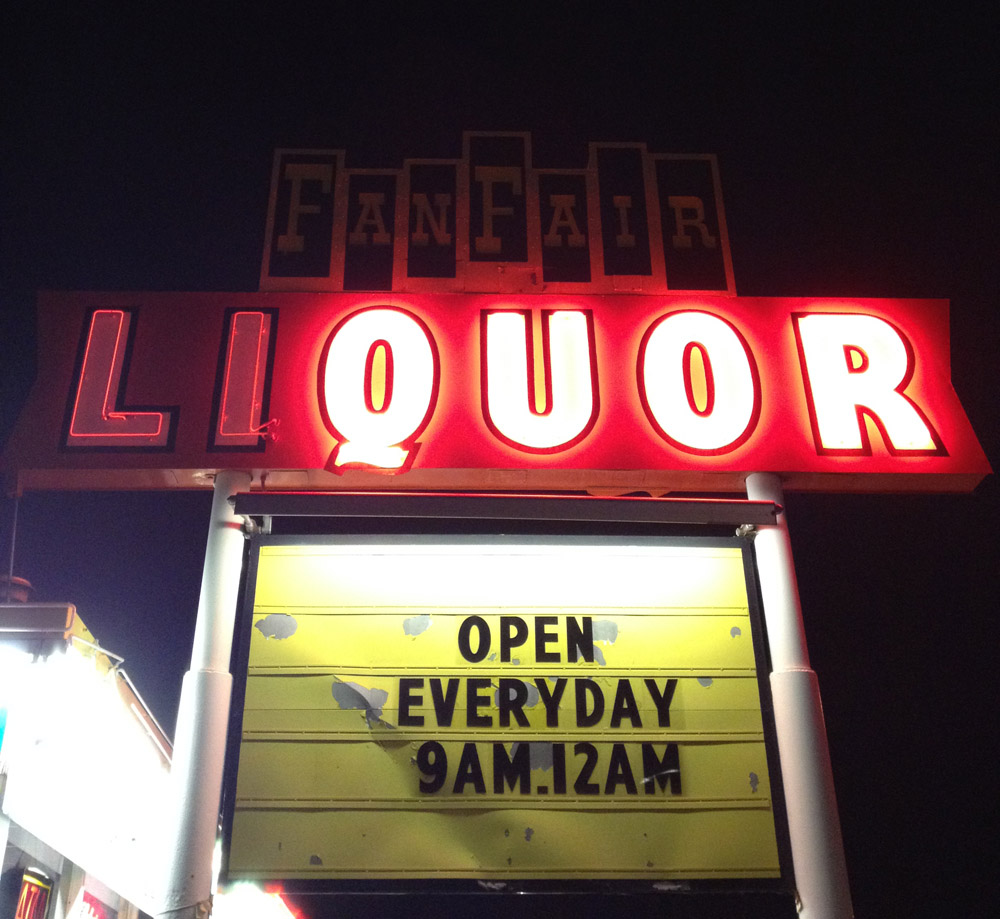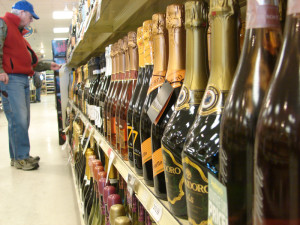
You have to hand it to Colorado’s liquor stores. If Gov. John Hickenlooper signs Senate Bill 197, they will have turned an effort by the grocery chains to give them more competition into a victory for themselves.
They will give up very little but gain the right, over time, to buy each other out and to sell food. Meanwhile, they don’t have to suffer serious competition from nearby supermarkets unless they want it.
You know the liquor stores will have won because Jeanne McEvoy, longtime lobbyist and head of their trade association, has written an op-ed in The Denver Post urging the governor to sign the bill. He still has a couple of weeks in which to make up his mind.
McEvoy is not given to giving in. When the grocery chains were first talking about an initiative which would give them the right to sell full-strength beer and wine, she said the liquor stores wouldn’t negotiate because they didn’t have to. “They say there’s got to be a compromise,” she told me early in the campaign. “Well, there doesn’t. Where is that written?”
That was a stand rooted firmly in history. McEvoy and her predecessors have beaten back, in the legislature and at the ballot box, all previous efforts by grocery stores to sell wine and beer. Colorado’s peculiar liquor laws have basically been in place since Prohibition ended 80 years ago.
In the final days of the recent legislative session S.B. 197 was reworked to look like a compromise that might forestall the ballot issue — but mostly gave the liquor stores much of what they wanted. So eager were lawmakers for the deal that they approved it 31-4 in the Senate and 57-7 in the House.
It’s 33 pages of confusing economic mandates, rules, distances and timetables that would make Hugo Chavez or a Washington bureaucrat proud.
True, the bill authorizes everyone, even convenience and grocery stores, to sell full-strength beer starting in 2019. But modern mass-market beers aren’t that much stronger than the 3.2 beer they can sell now and 3.2, sold only in five states, is a pain for brewers. It’s on the way out anyway.

But there’s nothing said about wine. Instead, if supermarkets want a liquor license, they would have buy two existing liquor licenses, including the one belonging to the store that is typically nearby. These licenses would have to be merged into a single license owned by the supermarket.
Or actually its pharmacy. Under another weird provision in Colorado law, the liquor license goes with the pharmacy, not the grocery department. That’s why even Rite Aid can sell booze at one of its stores.
There is no mandate that the liquor store owner has to sell his license, and there is no cap on what he can charge for it. John Brackney, spokesman for Your Choice Colorado, the group promoting the initiative, calls it a “poison pill.”
Fortunately, such rules don’t apply to other businesses. Supposing you wanted to launch a new pizzeria, but pizzerias were licensed by the state and you couldn’t start one without first buying up the licenses issued to Domino’s or Blackjack. You’d be properly outraged, but they can get away with such stuff in the liquor game.
Even if a supermarket chain could find a seller whose price was not unreasonable, it would be limited to no more than four additional licenses until 2022, seven more until 2027, 12 by 2031, 19 by 2037 and, only after that, an unlimited number. That is economic mumbo-jumbo.
The pending law would permit liquor stores to sell food and other nonalcoholic products, so long as their revenues didn’t exceed 20 percent of their gross sales. Under current law they can sell only limes, olives, peanuts and other small alcohol-related items.
The lifting of that ban is a good move. If groceries should be able to sell booze, liquor stores should be allowed to sell food — though it is absurd to put limits on the volume. It would require the state to hire additional auditors to make sure stores aren’t exceeding their limits.
Here’s the part of the law some large or enterprising liquor store owners would like the best: They would be allowed to buy each other out. Expansion — what a concept! Under current law no owner is allowed more than one liquor license, an unnatural limit that only encourages corporate subterfuge.
Of course there are unnatural limits in the bill too: From 2017 to 2022, a liquor store can buy only one additional license; until 2027, another one; and after 2027 a third, for a total of four. These would be market transactions at market prices; nobody has to buy or sell.
Brackney’s group has finally won title approval for its initiative and is circulating petitions. It must collect more than 98,000 valid signatures by Aug. 8 — not a problem, according to Brackney.
If the governor vetoes S.B. 197, it’s “full speed ahead,” he said. But if he signs it, they would reconsider. That’s partly because the bill’s backers maintain much of it would still apply — such as the provision requiring supermarkets to buy liquor licenses from existing stores.
Proposed Initiative #104 would allow grocery stores — but not convenience stores under 3,000 square feet — to sell beer and wine, but not hard liquor. It’s simple and straightforward and is a better bet than S.B. 197. And because it’s a statute, not a constitutional amendment, if it passes it could be improved and made fairer by the legislature next year. Like letting the liquor stores sell food.
Longtime Rocky Mountain News political columnist Peter Blake now writes once a week for CompleteColorado.com. Contact him at pblake0705@comcast.net You may re-publish his work at no charge and without further permission; please give full credit to Peter Blake and www.CompleteColorado.com.


